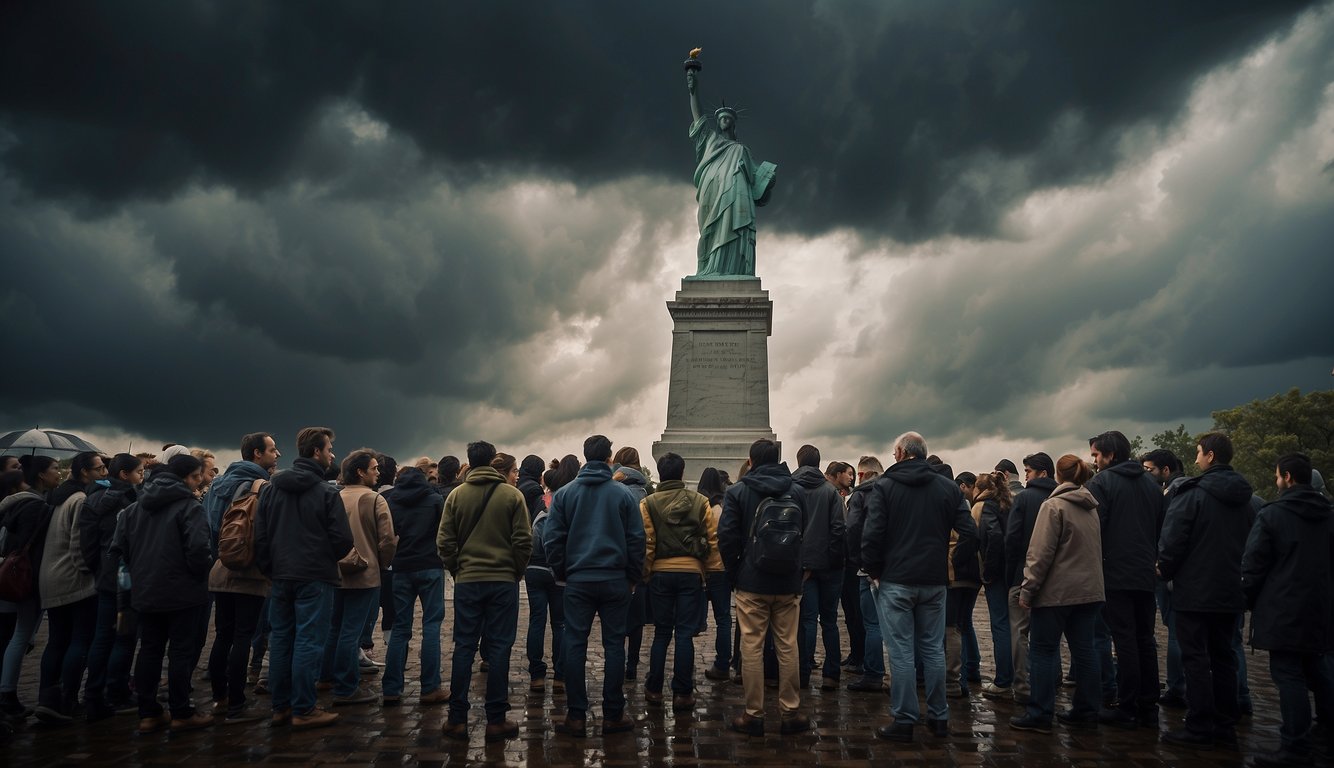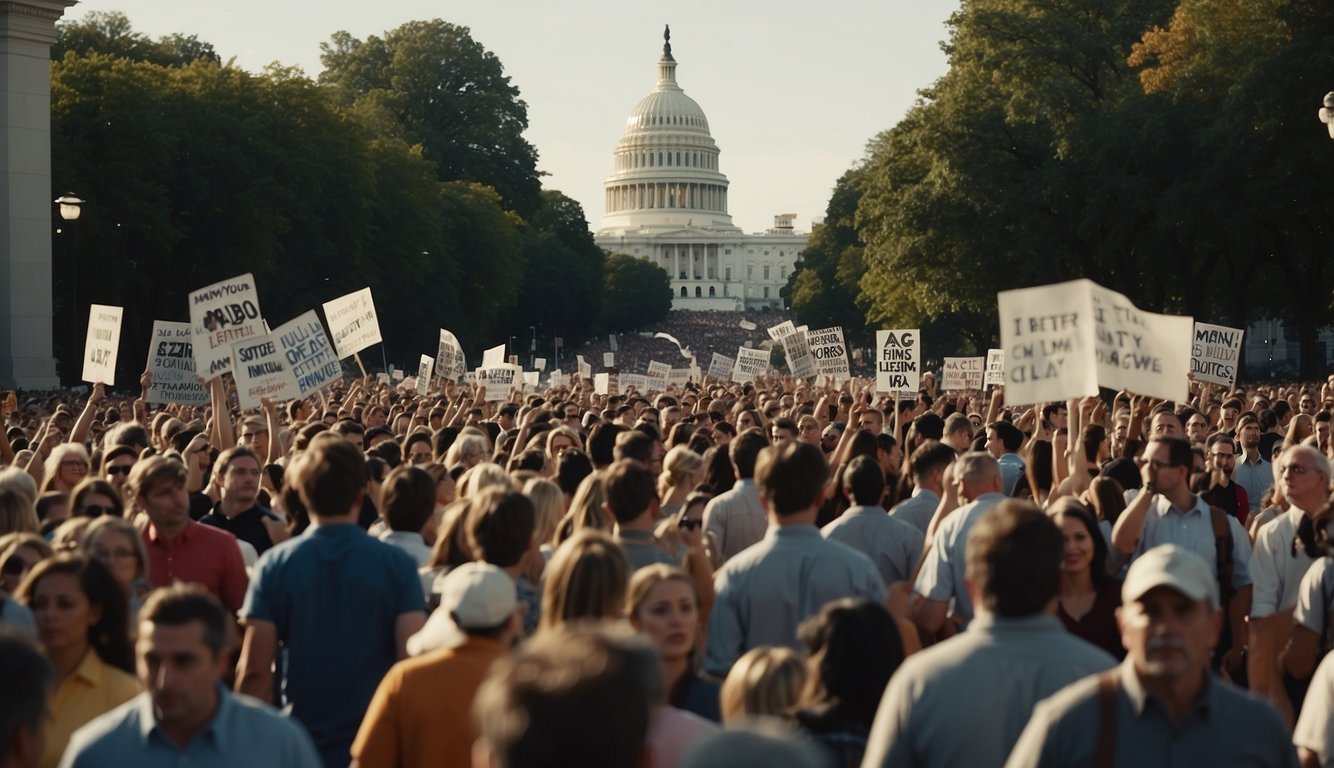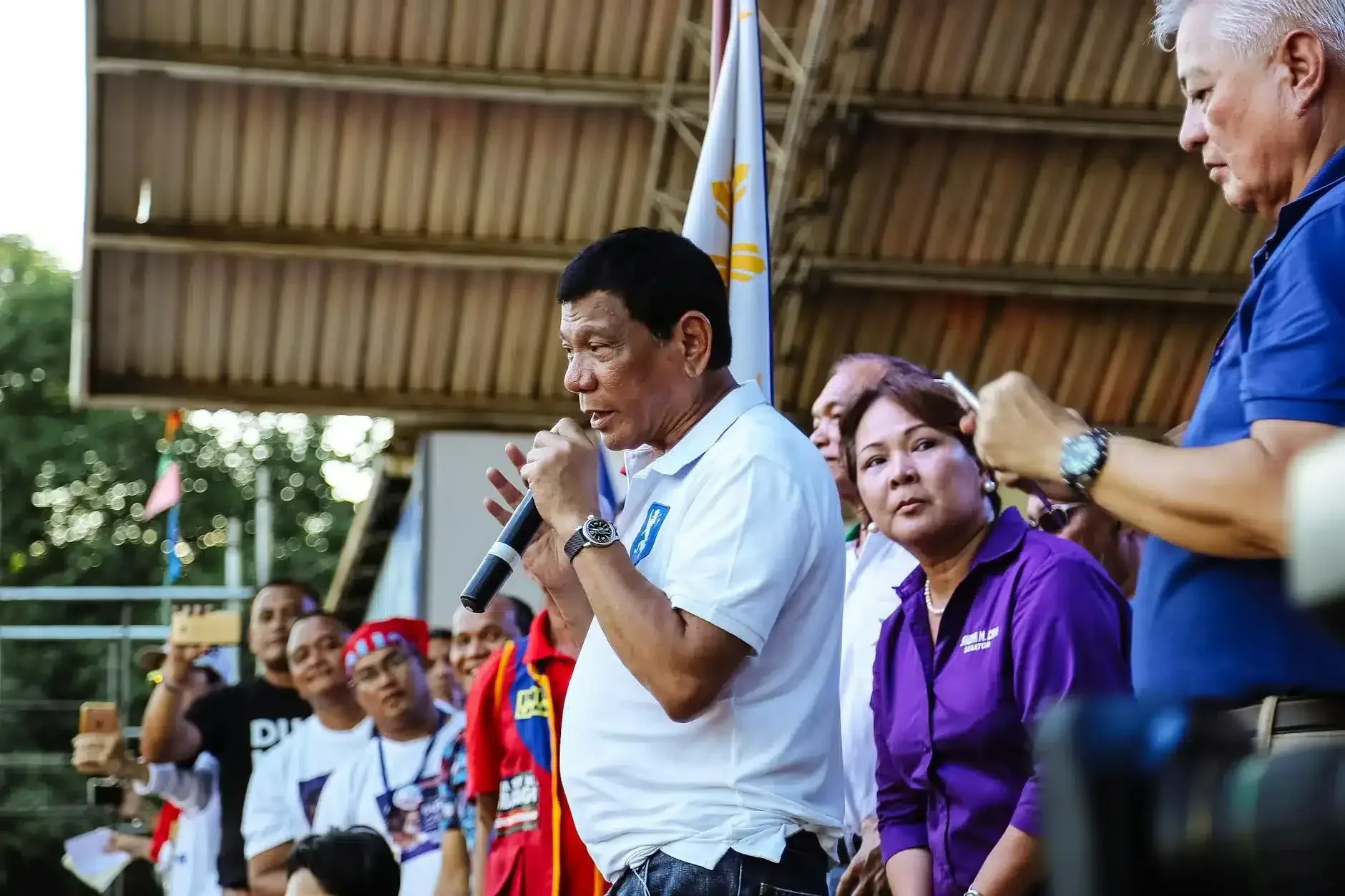Estimated reading time: 15 minutes
They say democracy is going through a bit of a quarter-life crisis, reevaluating its life choices, and possibly flirting with a sports car purchase. But in all seriousness, democracy does seem to have hit a few potholes on the road to freedom and equality. Across the globe, the masses are pulling at the seams of the political sweater, wondering why it doesn’t fit like it used to, or questioning whether it ever did.

The concept of democracy has always been a bit like that popular kid in school who everyone thinks they know, but who surprises you by running for class president with a platform that includes both free soda and extended library hours. In some places, people are feeling a disconnect from their political parties, questioning if their moderate views have a place at the table anymore. It’s akin to showing up to a potluck and realizing you’ve brought a salad to a dessert party.
Meanwhile, stresses on liberal democratic ideals are shaking the very foundations of what many thought were unshakeable. Democracy was that ever-stable Jenga tower, now looking suspiciously wobbly as various global players eying the blocks like they’re choosing menu items at an all-you-can-eat buffet. But don’t despair; every game of Jenga eventually ends, setting the stage for a new tower to be built block by block.
The Roots of Democratic Distress

In contemplating the democratic discomfort, one must don a detective’s hat, for the mystery is as deep as an overcooked casserole: flavorful yet baffling. It’s a tale of historical woes and contemporary frowns.
Historical Flashbacks
Peering through the historical looking glass, the spectacles of democracy reveal some smudges. Think back to the days of the Great Depression, a time when economic turmoil almost yanked the rug out from under democracy, leading some nations to tango with more authoritarian partners. Fast forward to the aftermath of World War II, as the global stage attempted to rebalance power and embed democratic ideals. Yet, one must chuckle at the optimism of the past; they truly believed they had clinched the formula to stave off dictatorship and global conflict.
Global Snapshot Today
Now, twirl into the present, where “democratic backsliding” has become a trendy dance move on the political dance floor. Sources like Freedom in the World waltz in with charts and graphs showing some countries moonwalking away from democratic practices with an alarming zeal. The balance of freedom and order is akin to maintaining a diet—too much indulgence, and you’re metaphorically bursting at the seams; too little, and the growl of unrest becomes audible. The ‘snack’ of democracy is seemingly losing its appeal, perhaps it’s the high fiber content in those wholesome rights and freedoms that’s difficult for some to digest.
Electoral Conundrums and Capitol Capers

In the kaleidoscopic world of American politics, electoral integrity and unexpected turmoil often intertwine like a political thriller, where suspense doesn’t require a fictional script.
Ballot Box Battles
When it comes to elections in the United States, every vote counts, that is, until it’s contested. In the aftermath of the tightly contested presidency, a mosaic of legislative efforts has surfaced with the purported aim to tighten the reins on voting security. Several states have sprinted to the legislative finish line with new requirements that could trip up even the most enthusiastic of voters with restrictions—from ID hurdles to narrowed voting windows. They’ve turned the simple act of voting into an obstacle course that might need its own training manual.
Jan. 6, 2021: A Day to Remember
They say a little party never killed nobody, but the caper at the Capitol on Jan. 6, 2021, was no Gatsby affair—it was a full-blown riot. In a plot twist that shocked onlookers worldwide, supporters of a Republican presidency refused to accept an electoral defeat, leading to a domino effect of disbelief, disarray, and discord. In what some have melodramatically branded a coup, costumed crusaders scaled walls, donned eccentric outfits, and gave new meaning to “storming the capitol.” They say truth is stranger than fiction, and on that day, it seemed to borrow from the pages of a dystopian novel—except the chaos was all too real.
Media, Disinformation, and the ‘Fake News’ Frenzy
In today’s digital mosh pit, where truth often crowdsurfs over a sea of lies, the media juggles the fiery torches of facts and the ice-cold daggers of “fake news.” Let’s explore this thrilling circus act, shall we?
Media’s Role in Democracy
In the thrilling tightrope act of democracy, the media functions as both the safety net and the carnival barker, where they should ideally enrich public discussion with factual narrative. But let’s face it, sometimes the signal gets a bit scrambled, and the crowd is left watching a mime stuck in an invisible box of confusion. Fact-checkers work overtime, much like diligent parents cleaning up after a toddler’s rampage through the house of truth.
The Disinformation Dilemma
Disinformation – the art of serving a cocktail of half-truths with a pinch of lies, all shaken, not stirred. The digital world’s villains often masquerade as keyboard warriors, plotting devious schemes in the form of fake news to lure unsuspecting social media bystanders into their web of deceit. And let’s not forget, the term “fake news” truly flourished under former ringmaster Trump, who, let’s be real, could have started his own circus with it. Censorship might appear as the superhero caped in caution tape, but it’s a slippery slope that can turn into a villain faster than one can say “but what about my free speech?”
Courting Controversy: Judiciaries Under Fire
In an era where judges often get more limelight than celebrities, the judiciary is wrestling with its script, striving to maintain the sacred balance of law without succumbing to the gravitational pull of political power.
Balance of Law Versus Power
Judiciaries, the unsung heroes or the beleaguered stars of the justice league, depending on whom you ask, are in a bit of a pickle these days. They’re supposed to don their robes and stand as the staunch defenders of the rule of law, where laws are applied equally, protecting everyone’s independence and ensuring due process. But, plot twist!, sly political powers often prefer them as marionettes rather than the independent arbiters of justice.
In what might seem like a script for a courtroom drama, courts worldwide are facing pressures that might make a lesser institution crumble like a cookie in court. They’re meant to interpret law with the divine indifference of justice personified—blindfold on, scale in hand, and no favors or autographs.
One could argue that it’s a tall order for judiciaries to balance law and power when the latter looms over them, casting a long, often unwelcome shadow. The courts are like goalkeepers; praised when they save but criticized when they let one past. Everyone expects a save every time, but hey, they’re only human (with gavels).
The Ills of Incivility and the Tug of Polarization
In the grand theater of democracy, civility has exited stage left, and polarization is hogging the spotlight. This section peeks behind the curtains to reveal how manners have taken a backseat in political governance and how America’s bipartisan tango has turned into a tug-of-war.
Erosion of Etiquette in Governance
Once upon a time, Congress was a place of spirited debate, where one could disagree without being disagreeable. Now, it seems that lawmakers are more likely to exchange barbed comments than handshakes. Incivility has become the new normal, a disturbing trend that turns legislative chambers into verbal battlegrounds. A far cry from the decorum of yesteryears, today’s political discourse often feels like a reality TV show where the loudest and the brashest grab the headlines.
Divides within The Divided States of America
America prides itself on the ‘United’ part of its name, but the current vibe feels more like ‘Divided States of America.’ The political party landscape has been sculpted into two extreme hills, with very few brave souls meeting in the valley. Polarization is not just a buzzword; it’s the neon sign that flashes above every political conversation, signifying the vast ideological chasms splitting communities and dinner tables alike. Extremism has found fertile ground on both ends of the spectrum, as the art of compromise now seems as outdated as a dial-up modem.
From the Ballot to the Bullet: Political Violence and Extremism
In the transition from casting votes to casting stones, the United States has seen a shift from civil discourse to a dangerous flirtation with political violence, undermining the bedrock of democracy itself.
Far From Civil Liberties
One might quip that civil liberties are getting less civil by the day, as political violence enters the chat with the subtlety of an elephant in a china shop. The recent assault on the Capitol is evidence that when political passions are inflamed, human rights and the rule of law sometimes get RSVPs lost in the mail.
This alarming trend, where individuals trade in their ballots for bullets, demonstrates a challenging paradox: defending one’s rights is essential, but not when it comes to an outright insurrection. It appears that for some, the line between defending democracy and derailing it is as thin as the patience at a DMV line.
The insurrection on January 6, 2021, was not just a shock to the system; it was a wake-up call with more buzz than a thousand alarm clocks—demonstrating that when tensions boil over, the pot doesn’t just whistle, it can explode.
Their actions, a masquerade of patriotism, were a stark reminder that civil liberties and human rights are fragile, and momentary lapses can lead to historical chasms. These events have shown that political violence is an uninvited dinner guest, lurking around the corner, ready to disrupt the feast of freedom.
As they say, democracy is not a spectator sport, but that doesn’t mean one should run onto the field and tackle the referee. So, although the roots of political violence are as complex as your average quantum physics textbook, America is looking for a way to bookmark the page on extremism and return to the chapter on peaceful political engagement.
Gender Gaps and Identity Politics: Inclusivity or Incendiary?
The dance between gender gaps and identity politics often leads to a tango of controversy in the democratic sphere. It’s a spicy mix of inclusion efforts and allegations of stoking the flames of division.
The Democratic Divide on Diversity
When it comes to gender inclusion, democracies often find themselves in a bit of a pickle. On one hand, they strive for a utopian buffet of diversity, aiming to serve equal opportunities with a side of dignity for all genders. But the pursuit sometimes slips into the slick territory of identity politics, which can be as divisive as arguing over pizza toppings at a party.
It’s not just gender, though. Discussions of racial injustice and discrimination frequently join the conga line, adding their own rhythm to the beat. One second, political leaders are hip-shaking for more inclusive policies and laws, and the next, they’re facing a crowd that’s split faster than a banana in a sundae.
In this jamboree of intentions and outcomes, the question at the heart of the hoedown remains: Are we paving a path toward genuine rectification of past wrongs, or just tossing glitter on a simmering volcano? Whether this party’s punch is spiked with the liquor of liberation or the moonshine of mayhem is still up for debate. So, grab some popcorn because this drama unfolds with every election cycle, policy debate, and public discourse.
Looking Abroad: Autocrats, Democrats, and Geopolitical Gambles
In a world where leaders play high stakes geopolitical poker, democracies and autocracies are laying their cards on the table, and it seems the jokers might just be wild. On one hand, you have nations brandishing their democratic values like a royal flush, while on the other, autocratic regimes shuffle the deck, hoping for a full house to consolidate power. Let the games begin.
Democracy’s Passport to the World
From the bustling boulevards of Paris where liberty once frolicked to the samba rhythms of Brazil echoing cries for justice, democracy’s tour has had both encores and rotten tomatoes. In Africa, the winds of change frequently blow in various directions; sometimes they bring refreshing democratic change, and other times they backpedal to the old authoritarian tunes. Meanwhile, Germany has been like that consistent tour manager, keeping a steady beat on the democracy drum and nudging others by example.
- France: Continues to sing ‘La Marseillaise’ for human rights, but will the chorus resonate across borders?
- Brazil: The Samba of democracy is intricate; the question is, can they keep the rhythm in the face of toe-tapping autocrats?
Exporting Ideals or Idols?
As the dragon of the East, China, parades its Belt and Road Initiative like a fire-spitting float at a carnival, eyebrows are raised, and skeptics ask: is it a Trojan horse carrying authoritarian strings attached? Far from the dragon’s lair, the steppes of Central Asia seem to be a chessboard where democratic knights and authoritarian kings vie for strategic squares. In the mix, Ukraine has become an unwilling pawn in a game that tests the resolve of international law.
- China: Economic clout or velvet-covered iron fist? The jury’s out, but it’s wearing silk.
- Central Asia: Less like a Silk Road and more like a geopolitical hopscotch, the region sees democracy jump in and autocracy push out.
- Ukraine: It courageously faces a goliath with a democratic slingshot, hoping the world won’t just watch and munch on popcorn.
The globe-trotting ambitions of democracy and the territorial claims of authoritarianism are more than just power plays—they’re a testament to the enduring struggle between freedom and control. Will international law serve as the referee in this match, or will it be sidelined for a box of chocolates where you never know what you’re gonna get? Stay tuned.
Economic Engagements and the Equity Equation
In the world of economic engagements, money and power often seem to run hand in hand, like peanut butter and jelly, or perhaps more aptly, bankers and bonuses. It’s a partnership that, for better or worse, shapes the landscapes of democracy and equity quite dramatically.
When Wealth Dictates Worth
They say money talks, but sometimes it’s more of a shout—particularly when it comes to influencing democracy. When wealth dictates worth, you have a scenario where the scale of inequality tips, and opportunities for the average Joe or Jane can get squished flatter than a penny on a railroad track.
Finance plays the ringleader in this circus of haves and have-nots. In a world where economic power is concentrated, those with the fattest wallets tend to call the shots. To them, crises—be they from COVID-19 to climate change—might be inconveniences that are as easily avoided as a puddle on the sidewalk by simply walking around or hopping over them. However, for those without the golden tickets of substantial resources, these issues are like oceans they must somehow learn to swim across.
On the business end of the spectrum, some companies wield influence like a kid with a super-soaker at a pool party. Sure, they might bring some fun (or jobs and innovation, if we drop the metaphor), but turn that power up too high, or in the wrong direction, and pretty soon you’ve got a soggy mess and a bunch of unhappy campers (or disgruntled citizens and a destabilized social landscape).
And here’s the rub: The arena of economic engagements can either be a land of opportunity, where hard work and novel ideas are the seeds that grow into trees of success, or it can be an exclusive club, where only the VIPs with the most green get to play. One fosters a democracy that blooms, while the other grows a garden where only a select few get to enjoy the fruits.
Democracy’s Lifeline: Education and the Information Epoch
In this golden age of information, where even cats have their own blogs, education shines as the unsung hero, ensuring democracy doesn’t hit the snooze button for the umpteenth time. It’s the lighthouse guiding ships through a fog of misinformation, because let’s face it, fake news spreads faster than the rumor of free coffee in the office.
Education is not just about learning the three R’s anymore; it’s about nurturing critical thinkers who wear their free expression like a superhero cape. These caped crusaders are the backbone of any democracy, questioning everything from “Why is pineapple on pizza?” to “What’s going on in the parliament today?”
The media, once called the Fourth Estate, plays best friend to democracy, with its freedom being the cherry on top of the sundae of civil liberties. In this epoch, where every tweet is a potential headline and every headline a tweet, media freedom ensures that the airwaves are filled with more than just reality TV scandals. They serve the public with a side of truth, hold your mayo.
But let’s not forget the foundation upon which this towering edifice of democratic fervor is built—the bedrock belief in education’s power to enlighten minds and pave the boulevard of informed choice. Without it, citizens might as well cast their votes based on their favorite color.
Ultimately, education equips the people with the superpower of discernment in the age of too much information. It’s here, persistently dabbling in the arts of civics, ensuring that every meme, every app notification comes with a spoonful of sense.



